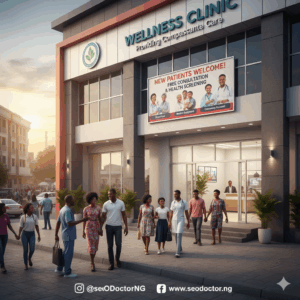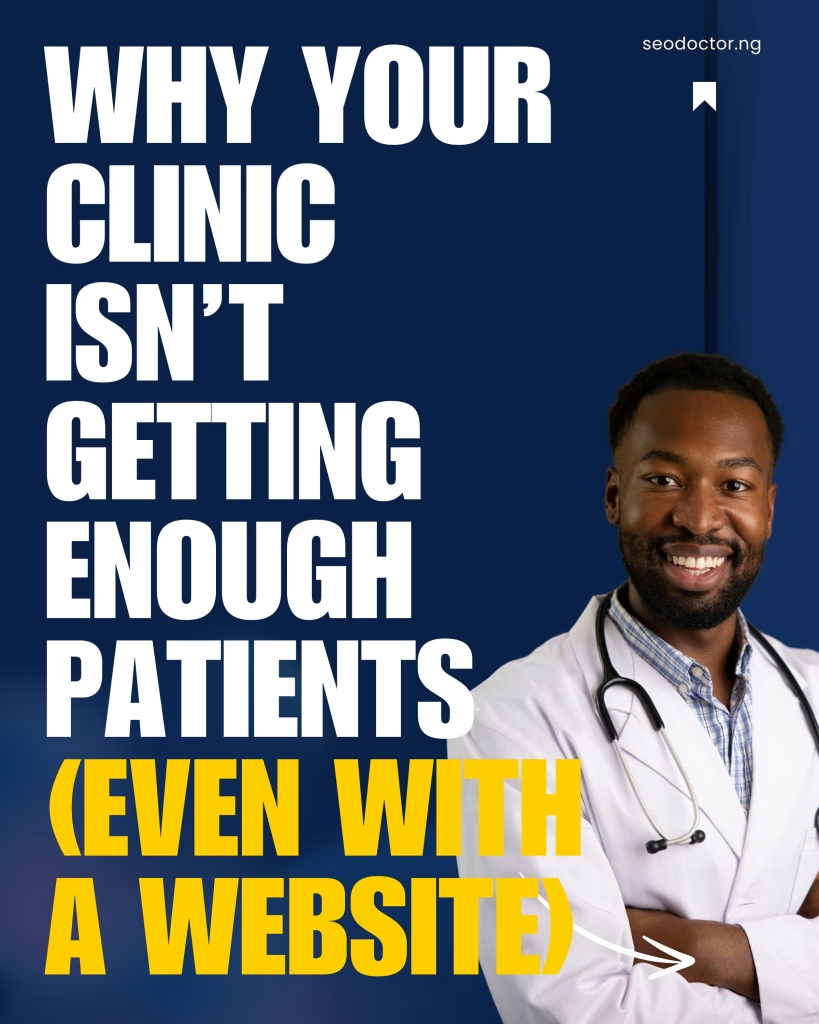Introduction
Many businesses invest in SEO, expecting instant results. However, unlike paid advertising, SEO is a long-term strategy that requires ongoing optimization and consistent tracking. It’s not just about ranking higher on Google, it’s about driving the right traffic, improving user engagement, and increasing conversions.
One of the biggest challenges businesses face is knowing how to measure SEO success effectively. Without the right data, it’s easy to feel like SEO isn’t working when, in reality, you may not be looking at the right performance indicators.
This article will guide you through how to track SEO progress, the most important metrics to monitor, and the best tools for evaluating SEO performance. By the end, you’ll have a clear roadmap to ensure your SEO efforts deliver measurable results.
1. Why Tracking SEO Performance is Important
SEO is a Long-Term Strategy—Results Don’t Happen Overnight
SEO is not a quick fix. Unlike paid ads, which can bring immediate traffic, SEO takes time to build authority, improve rankings, and drive sustainable results. Depending on competition, industry, and strategy, it can take 3-6 months to see significant improvements.
Without tracking SEO progress, you might abandon effective strategies too soon or fail to identify areas that need improvement.
Without Tracking, You Won’t Know What’s Working and What Needs Improvement
SEO is a combination of technical optimization, keyword strategy, content marketing, and link-building. If you’re not measuring performance, you could be focusing on tactics that aren’t delivering results while missing opportunities to improve traffic and conversions.
For example:
- If your rankings are improving but leads remain low, you may be targeting the wrong keywords.
- If you have high traffic but a high bounce rate, your website speed, content, or user experience might need attention.
Tracking SEO allows you to pinpoint weaknesses and optimize accordingly.
Tracking SEO Allows You to Adjust Strategies Based on Data, Not Guesswork
Instead of guessing what’s working, tracking SEO enables you to:
✅ Identify which keywords bring the most valuable traffic.
✅ Optimize underperforming pages to improve rankings.
✅ Measure backlink quality and growth.
✅ Improve site speed, mobile-friendliness, and user engagement.
Data-driven SEO decisions help you adapt to Google’s ever-changing algorithms and improve long-term performance.
2. How Do I Track My SEO Progress?
Tracking SEO success requires a systematic approach. The best way to monitor progress is to focus on three core areas:
1️⃣ Website Traffic Growth
Are more people visiting your website through search engines?
- Track organic traffic (visitors who find your site through Google, Bing, etc.).
- Compare month-over-month and year-over-year traffic trends.
2️⃣ Keyword Rankings
Are your target keywords ranking higher on Google?
- Identify which keywords are driving traffic.
- Monitor ranking improvements for priority search terms.
3️⃣ Lead Generation & Conversions
Are visitors turning into customers?
- Measure conversion rates from organic traffic.
- Track phone calls, form submissions, and purchases resulting from SEO efforts.
These three elements provide a clear picture of SEO performance and where you need to focus your efforts.
3. What Metrics Should I Focus On?
SEO success is not just about ranking #1 on Google—it’s about driving the right traffic and increasing conversions. Here are the most important SEO metrics to track:
1️⃣ Organic Traffic (Google Analytics)
This metric tells you how many visitors come to your website from search engines (not from paid ads, social media, or direct visits).
- If your organic traffic is steadily increasing, your SEO strategy is working.
- If traffic is declining, you need to analyze your rankings, website structure, and Google updates.
2️⃣ Keyword Rankings (Google Search Console, SEMrush, Ahrefs)
- Track your position on Google for targeted keywords.
- Monitor keyword movements daily, weekly, and monthly.
- A consistent upward trend means SEO efforts are paying off.
3️⃣ Click-Through Rate (CTR) (Google Search Console)
CTR measures how often people click on your website when they see it in search results.
- A low CTR means your title tags and meta descriptions may need improvement.
- Optimize your titles to be more compelling and increase your chances of getting clicks.
4️⃣ Bounce Rate & Dwell Time (Google Analytics)
- Bounce rate: The percentage of visitors who leave without interacting.
- Dwell time: How long users stay on your page.
- A high bounce rate suggests that content isn’t engaging or relevant to visitors.
5️⃣ Conversion Rate (Google Analytics, CRM tools)
The ultimate measure of SEO success is how many website visitors take action (call, book, subscribe, or buy).
- A low conversion rate means your website or landing pages need optimization.
6️⃣ Backlink Quality (Ahrefs, Moz, SEMrush)
- Backlinks improve domain authority and rankings.
- More high-quality backlinks = better SEO performance.
Tracking these metrics helps identify strengths and weaknesses, ensuring you improve SEO where it matters most.
4. What Tools Do You Use to Measure SEO Performance?
To effectively track SEO progress, use a combination of free and paid SEO tools:
📊 Free Google Tools (Essential for SEO)
✔ Google Analytics – Tracks traffic, user behavior, and conversions.
✔ Google Search Console – Monitors rankings, search queries & indexing.
✔ Google My Business Insights – Essential for local SEO tracking.
💡 Paid SEO Tools (For Advanced Analysis)
✔ SEMrush – Keyword rankings, backlinks & competitor SEO insights.
✔ Ahrefs – Backlink analysis, keyword tracking & content strategy.
✔ Moz Pro – Domain authority, page analysis & site audits.
✔ Screaming Frog – Identifies technical SEO issues like broken links.
Using these tools ensures accurate data tracking and allows you to fine-tune your SEO strategy for better results.
5. Can You Guarantee #1 Rankings on Google?
🚨 Short answer: No, and any agency that guarantees #1 rankings is misleading you.
Here’s why:
- Google’s algorithm changes constantly, making fixed rankings impossible.
- SEO takes time and depends on competition, content, backlinks, and site optimization.
- The goal of SEO is not just ranking #1 but driving relevant traffic and increasing conversions.
What Can a Good SEO Strategy Guarantee?
✅ More organic traffic
✅ Higher Google visibility
✅ Improved brand authority
✅ More leads & conversions
SEO is about long-term, sustainable growth, not quick fixes or shortcuts.
Conclusion: Track SEO Success for Long-Term Growth
Measuring SEO success isn’t just about ranking higher—it’s about driving more traffic, improving engagement, and increasing conversions.
✅ Track key metrics like organic traffic, keyword rankings & conversions.
✅ Use the right tools to measure SEO progress.
✅ Adjust strategies based on real data, not assumptions.
🚀 SEO is a long-term investment—track it properly, and you’ll see real business growth!
📢 Want a FREE SEO Audit to Measure Your Website’s Performance?
📩 Contact us today for a detailed SEO performance report! 🚀
#SEO #MeasuringSEO #GoogleRankings #SEOTracking #DigitalMarketing #SEOAnalytics #MarketingStrategy














This Post Has 8 Comments
This is a really good tip particularly to those fresh to the blogosphere.
Short but very precise information… Thanks for sharing this one.
A must read post!
I was suggested this website by my cousin. I am not sure whether this post is written by him as nobody else know such detailed about my
problem. You are wonderful! Thanks!
Glad you found value from it. Kindly share to others who may be in need of it to
Your mode of explaining the whole thing in this article is
truly good, all be able to easily understand it, Thanks a lot.
Thank you. The points was broken down for easy readability
Thank you. The points were broken down for easy readability
Hi would you mind stating which blog platform you’re using?
I’m planning to start my own blog in the near future but I’m having a tough
time selecting between BlogEngine/Wordpress/B2evolution and Drupal.
The reason I ask is because your layout seems different then most
blogs and I’m looking for something unique.
P.S My apologies for being off-topic but I had to
ask!
try using astra themes if you have a wordpress site.
Thank you